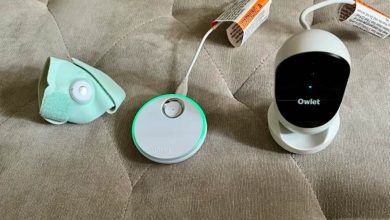
The Side Effects Of Teeth Grinding

When we fall asleep at night, we feel a great peace coming over us as we drift off into dreamland. If you’re one of the many people who suffer from teeth grinding, however, your sleep isn’t going to be so peaceful. When we grind our teeth at night, we’re contributing to years of serious dental damage without even knowing it. Most of the time, we’re not even aware that we’re grinding until a dentist points it out. You may wake up with a slight headache, a feeling of tightness in your jaw, and complaints from your partner about keeping them up all night. Fortunately, however, you don’t have to suffer for long. And of the great dentists near Cary NC, can give you tips for healthy teeth as well as ways to put a clamp on night grinding. If you decide to ignore the problem, however, here’s what you have to be aware of.
You May Experience Aching
After a hard night of grinding, you may wake up in a lot of pain. While it’s easy enough to attribute morning aches and pains to a host of sources, including stress and the weather, you’ll be able to feel a specific type of pain from grinding. Usually, this pain will originate in your jaw and spread to your forehead, where it may manifest as a headache. You also might find yourself clenching your jaws throughout the day or even starting to grind slightly in times of high stress. If you feel pressure in your jaw or a need to clench down, you’re probably dealing with the after-effects of bruxism. While this is a problem that a lot of people deal with nightly, it can lead to serious issues with jaw pain, tooth wear, and migraines resulting from your nightly grinding. That’s why it’s so important to keep tabs on your grinding as well as your stress levels throughout the day. Stress and anxiety have a lot to do with grinding, so don’t ignore your emotional health and hope the problem will go away on its own.
Your Fillings May Loosen
All that grinding won’t just result in a long-held grudge by your sleep partner. After enough of it, you may find that any fillings in your mouth are starting to wiggle and become loose. This is a natural product of grinding. When your teeth have to deal with that kind of strain every night, fillings and implants don’t stand a chance. Even though your metal fillings and crowns might seem up to the task, they’re eventually going to start loosening if you don’t do anything about your nighttime grinding. If you’re worried about having fillings come loose, it’s important to see your dentist as soon as you can. You can curb your grinding either through using a nightguard or something as simple as cutting out alcohol and getting more exercise. In short, if your dentist can’t help address the problem, your primary care doctor may be able to.
Your Jaw Will Feel Strained

If you wake up and you feel like you’ve spent the whole night exercising your jaw, that’s because you probably have been. It’s not uncommon for many adults to hold stress in their jaw. We clench our jaws in moments of stress during the day, so it only makes sense that particularly stressed-out individuals would do the same at night. However, if you feel like your jaw is always in a strained, locked position, you might be dealing with a more serious problem. Talk to your dentist about preventative measures to take and daily exercises you can do to help relieve the pressure in your mouth region.
Your Teeth Will Wear Down
If you don’t do anything about your grinding, your teeth will eventually begin to wear down. While this will take place over the course of years, that doesn’t mean that its slow progress isn’t something you need to worry about right now. If you don’t want to experience tooth decay, generalized mouth pain, and gum disease, it’s extremely important to take preventative action by seeing your dentist at once. Whether you decide to wear a night guard or take matters into your own hands by de-stressing your life, it’s important to act before you end up with a mouth full of worn-down teeth that always feel like they’re exposed and in pain. There’s no reason to lose the use of your teeth before you reach old age. That’s why it’s crucial to talk to your dentist about preventative measures while you’re still in control of the situation. Protect your teeth from being worn down to a nub by taking a stand against bruxism as soon as you can.







